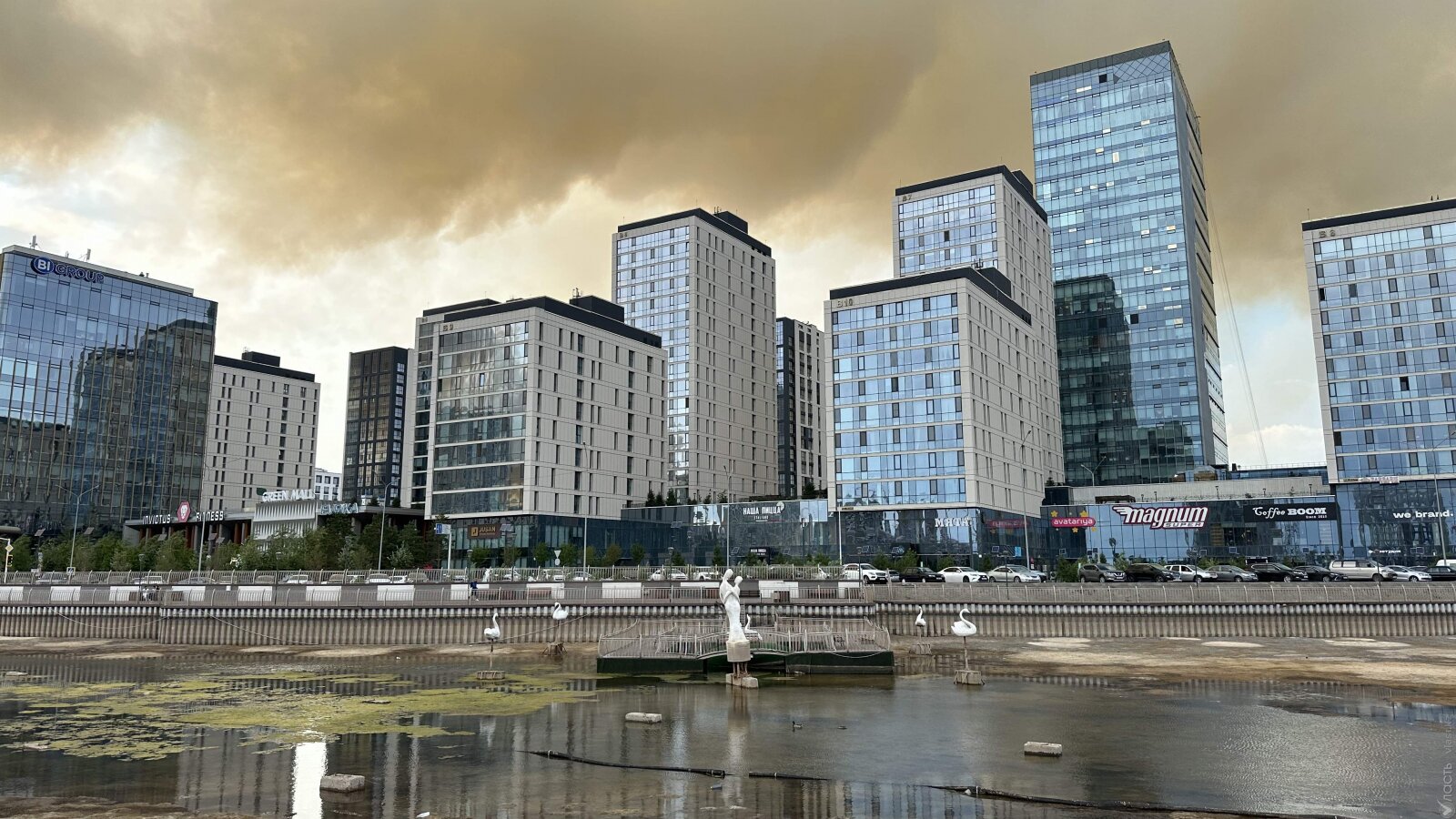A fire broke out in the outskirts of Astana on June 19. Smoke engulfed the entire city. To extinguish the fire, helicopters of the ministry of emergency situations siphoned water from the nearby Taldykol system of lakes – the same lakes that have been threatened by real estate construction for the past three years. For many years, this lake ecosystem has contributed to the regulation of temperature and humidity levels in the city, and served as a habitat for many birds, including endangered species.
This is not the first time that Taldykol has saved the city from tragedy. During the years of Asharshylyk (Kazakh for “famine”), two dire periods in the 1920s and 1930s, local residents survived thanks to fish and eggs they could find at Taldykol. The lake area also hosts three cemeteries – Bashan, Omar and Takdykol – with hundreds of graves. Now a civic organization is calling to rename this district into Taldykol, which would serve as a reminder of how closely connected are the fate of the Kazakhs and these steppe lakes.
On June 15, four days before the fire, the Supreme Court held its first hearing on an appeal trial aiming to establish protected zones around one of the lakes, Malyi Taldykol. The court case is poised to decide the fate of this territory, and to stop the drying up of lakes. About forty residents, who have closely followed the fate of Malyi Taldykol for years, attended the hearing. The courtroom staff were visibly surprised. One of them said it was the first time they had seen so many attending a court hearing.
The three judges, however, crushed the hopes of the activists in attendance for a resolution of the case. The hearing later was adjourned for June 21. However, on June 19, while the smoke of the fire covered the whole city, the Supreme Court postponed the second hearing indefinitely.
It seems that the court case is being delayed intentionally until public attention is diverted away from the issues of Taldykol, water scarcity, and wildfires across the country. Once Taldykol becomes “old news”, it will be easier for the court to decide against the preservation and restoration of the lake system.
No-one seems able or willing to stop the construction companies that dry up the lake and continue construction work at Taldykol. The lake system may not survive by the time the court meets again.
Can we allow the lakes to be destroyed while we grapple with wildfires, climate change, and a country-wide water crisis? And where will we find water next time we need it?
Adina Altay is a volunteer of the SOS Taldykol movement.
Поддержите журналистику, которой доверяют.








